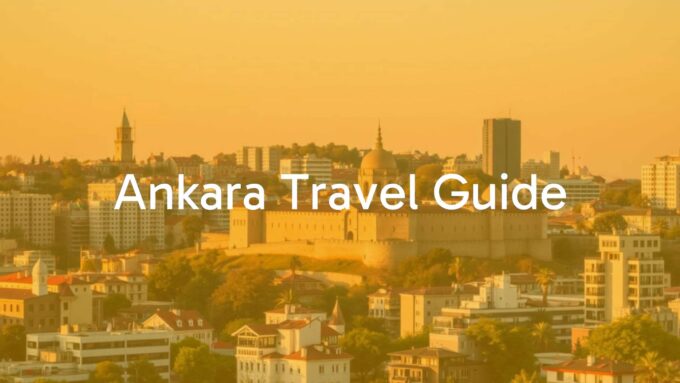Exploring Turkey’s culture is always a warm and memorable experience thanks to its welcoming people and blend of Eastern and Western traditions. To fully enjoy your time and build good relationships, learning and respecting local customs is very important. This guide highlights the main ideas of Turkish etiquette, helping make your visit both smooth and rewarding.
Key Values in Turkish Culture
Turkish daily life is based on several core beliefs and traditions. These important values shape how people act and interact and are key to understanding Turkish etiquette.
Showing Respect in Turkish Society
Respect (saygı) is very important in all social situations. This goes beyond just being polite-respect is especially shown to elders, authority figures, and even strangers through titles like “Bey” for men and “Hanım” for women, always used with first names. Turks are proud of their history and country, and it’s important to show respect for their culture, even in small ways, to build trust.
Public life in Turkey is generally traditional, especially outside major cities. This affects how people socialize, dress, and behave, especially in religious places or regarding drinking alcohol. Following these customs shows you value their way of life.
Family and Hierarchy
Family is at the center of Turkish life. Unlike Western societies, Turkish families are typically close-knit, and people are loyal and dependent on one another. Elders have the most authority, and their advice is always respected. Decisions, such as marriage, often involve many family members’ opinions. For example, parents often care deeply about their children’s spouse and that their grandchildren are raised as Muslims in mixed relationships.
Hospitality in Turkish Culture
Hospitality is a famous and valued part of Turkish culture. Guests are treated as special, with hosts going out of their way to serve food and make them comfortable. People often visit without announcing, and food or drink is always offered. If invited to someone’s home, bringing a simple gift or returning the hospitality is appreciated and shows gratitude.

Religion and Cultural Sensitivity
About 99% of people in Turkey identify as Muslims, mostly Sunni, and religion has a big influence on many aspects of daily life, especially among older generations.
How Islam Influences Daily Life
Islam shapes routines and social rules. For instance, the call to prayer happens five times daily, which you’ll notice in every city or town, with some shops even closing for prayer. Modest dress is valued, especially among conservative people or in religious settings. Always avoid public displays of affection and behave politely to show respect, remembering that modern city life can look more relaxed but conservative values are still strong, especially in rural areas.

Ramadan and Religious Festivals
During Ramadan, many Muslims fast from sunrise to sunset. If visiting at this time, try not to eat, drink, or smoke in public during daylight hours, especially in smaller towns. Life can also slow down a bit during this month. After Ramadan, Eid al-Fitr follows with meals, family gatherings, and special prayers. Eid al-Adha is another major festival involving family, prayer, and sharing food. Being aware of these holidays and customs helps you show awareness and respect while visiting.
Dress Code and Modesty
What you wear in Turkey depends on where you are and the occasion. Cities and tourist areas are often more relaxed, but it’s still best to dress modestly, especially outside these places or inside mosques.
What to Wear as a Visitor
Women in big cities can wear what they’re used to, but it’s safer to choose more modest outfits when traveling elsewhere (for example, avoid very short skirts, low-cut tops, or shorts). Men should wear conservative suits or jackets for business, with a tie preferred; in hot weather, a tie is still good if not a jacket. In general, cover your shoulders and knees to show respect.
Dress Rules for Mosques and Religious Places
In mosques, women need to cover their heads, shoulders, and knees. Many mosques lend scarves if needed. Men shouldn’t wear shorts and should take off their hats. Everyone must remove their shoes before entering, with places provided at each entrance. These dress codes are non-negotiable and vital to show respect.

Social Etiquette and Communication
Social interaction in Turkey is friendly but also guided by respect and unspoken social rules.
Greetings and Gestures
- Standard greeting: “Merhaba” (hello).
- For religious or conservative people: “Selamün Aleyküm” (peace be upon you), responded with “Aleyküm Selam.”
- Men usually shake hands firmly. Close friends and family may hug or kiss both cheeks.
- Women might shake hands or, with friends, hug and kiss on each cheek.
- Men should let women lead; if she offers a hand, shake it; if she offers her cheek, kiss both cheeks.
- Respectful greeting for elders: kiss their hand then touch it to your forehead.

Some people, especially for religious reasons, may avoid physical contact with the opposite gender.
Treatment of Elders and Superiors
Always stand up for elders and offer them your seat. Use respectful titles and let them lead the way in conversations and decisions. This shows deep respect, which is very important in Turkey.
Personal Space and Touch
| Context | Expected Distance/Behavior |
|---|---|
| Acquaintances/Work | Arm’s length is normal; handshakes, no hugging. |
| Friends and Family | Much closer; hugs and physical touch are common (same gender). |
- Friends of the same gender may hold hands or link arms. Never touch someone’s leg; it’s considered inappropriate.
- Men and women rarely touch unless they are close friends.
Eye Contact
Looking people in the eye shows interest and respect. However, in conservative situations, women might avoid direct eye contact with men. Try to notice and follow what others do.
Style of Conversation
- People might be indirect at first, especially when building relationships.
- Some can be very direct, especially about politics or sensitive issues.
- Small talk is common before business conversations.
- Punctuality is strict in business, more relaxed socially.
- Speak softly; talking loudly, especially in another language, can seem rude.
Language and Body Language
Knowing a few Turkish words and local gestures will make your interactions much smoother.
Useful Turkish Phrases
- “Merhaba” – Hello
- “Lütfen” – Please
- “Teşekkür ederim” – Thank you
- “Afedersiniz” – Excuse me
- “Yardım edebilir misiniz?” – Can you help me?
Trying your best with Turkish, even if your pronunciation isn’t perfect, is always appreciated.
Gestures in Turkey
- A circle with thumb and finger and shaking up-and-down means “good.”
- Raising the chin and making a “tut” sound means “No.”
- To call someone over, use a downward-facing palm and a scratching motion.
- Placing a hand over the heart to decline politely.
- Rubbing the side of the head in a twisting motion means “crazy.”
- The “OK” sign (thumb and forefinger touching) may be offensive; avoid it.
- The thumb between index and middle finger is rude; don’t use it.
Common Mistakes to Avoid
- Don’t French kiss in public.
- Don’t whisper at the dinner table.
- Don’t point the bottom of your foot at others.
- Keep nose-blowing quiet and discreet.
- Don’t assume others can’t understand English.
Visiting Homes and Mosques
Being welcomed into a home or visiting a mosque lets you see Turkish culture up close-but you should follow certain customs.
Entering Homes
- Take off your shoes at the entrance. Store them where everyone else does.
- Try to arrive on time; let your host know if you will be late.
Being a Good Guest
- Always accept food or drink, even a little, to show thanks.
- Try to finish your meal; leaving food suggests you didn’t like it.
- Bring a small gift for the host (flowers, chocolates, but not something expensive).
- If invited to dinner, declining a couple of times is polite, but accept by the third invitation.
- Hosts usually don’t open gifts immediately.
Visiting Mosques
- Remove shoes before entering.
- Women must wear a headscarf and cover shoulders/knees. Men must not wear shorts. No hats inside.
- Be quiet and respectful.
- Avoid taking photos in main prayer areas.
- Visitors should avoid visiting during prayer times unless invited.
Dining Etiquette
Meals in Turkey are social and often include several courses shared between everyone at the table.
Eating Together
- Starters include soups, salads, and dips; mains are usually meat with rice or bread.
- Dishes are shared; use your right hand, especially if eating bread or kebabs.
- Finishing your plate is polite. If you can’t eat more, touching your heart says you’re grateful.
- Never waste bread; leftover bread is left for animals, not thrown away.

Meal Times and Habits
| Meal | Usual Time |
|---|---|
| Breakfast (Kahvaltı) | 8-10am |
| Lunch (Öğle Yemeği) | 12-2pm |
| Dinner (Akşam Yemeği) | 7-9pm |
Meals can be long and often stretch out with conversation. Wait for your host to start before eating.
Serving and Accepting Food
Let the host serve you first. Wait until everyone is served to eat. Compliment the cook with a phrase like “Çok lezzetli!” (Very delicious!).
Tipping
- Restaurants/Cafés: Tip 5-10% if service is not included.
- Casual cafés: Round up the bill or leave small change.
- Taxis: Not required but rounding up is polite.
- Hotels: 5-10 TL per service for luggage or cleaning staff.
Gift Giving Customs
Giving gifts is a thoughtful gesture for hosts and at special times.
What and When to Give
- Bring flowers, chocolates, or candy if invited to a home. Only bring wine if you’re sure it’s acceptable.
- In business, choose a simple gift from your home country, not too personal or expensive.
How to Give and Receive Gifts
- Don’t expect your host to open your gift right away.
- Say thank you sincerely when you receive a gift.
- At weddings, gifts are usually given after the ceremony or at the celebration, not before.
- Close family often give gold jewelry; others give gold coins or cash.
What Not to Give
- Don’t give alcohol unless you’re certain it’s welcome.
- Don’t give very expensive gifts, as this may cause discomfort.
- Don’t be offended if gifts are put aside unopened.
Shopping and Bargaining Etiquette
Visiting Turkey’s markets is lively and includes lots of interaction, especially about price.
Shopping Traditions
- Markets and bazaars often expect bargaining, especially for carpets, ceramics, and textiles.
- This doesn’t apply in supermarkets or stores with fixed prices.
Bargaining Tips
- Start with a lower offer than the stated price and work up with friendly negotiation.
- Keep things happy and never aggressive; it’s meant to be a fun exchange, not a fight.
- If you can’t agree, politely thank them and walk away.
Transport and Being In Public Spaces
Whether on public transport or driving, certain behaviors are expected in Turkey.
On Public Transport
- Always let older people, pregnant women, or physically limited riders take your seat.
- Use pre-paid travel cards (like Istanbulkart in Istanbul).
- Transit during busy hours can be very crowded-expect little personal space.
Driving
- You need an international driver’s permit to drive here.
- Drivers can be more forceful; be careful, follow all traffic laws, and pay attention to road signs.
Common Questions About Turkish Etiquette
What should I avoid doing in Turkey?
- Don’t display too much affection in public.
- Never point at people.
- Don’t speak very loudly, especially in another language.
- Avoid the “OK” sign and other gestures that may be rude locally.
- Keep hands out of your pockets or off your hips when talking to elders or superiors.
- Always take your shoes off before entering homes.
- During Ramadan, don’t eat or drink in public during daylight.
- Don’t start sensitive political conversations unless invited.
Should I remove my shoes in Turkish homes?
Yes, always take off your shoes before entering someone’s home. You’ll usually see a spot to leave them by the door, and this shows respect for your host. This practice is also common for traditional outdoor dining areas in some parts of Turkey.













Leave a comment